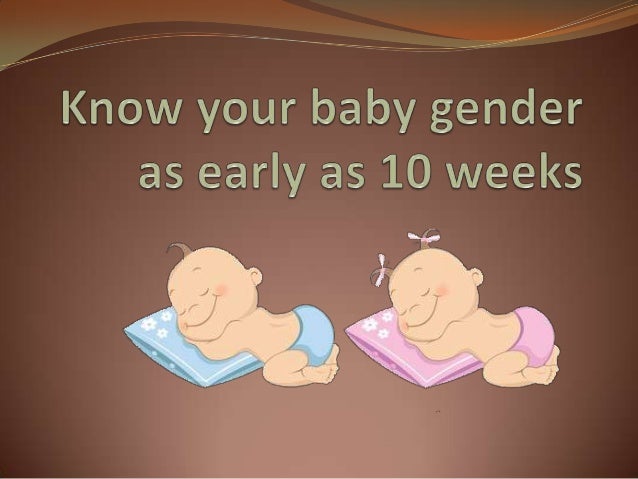The question of when a baby develops their gender is one that many parents ask. It’s a natural question, as parents want to know what to expect when their child is born. The truth is that gender development in babies is a complex process that occurs over time. In this article, we’ll explore the different stages of gender development in babies, when it occurs, and what factors can influence it.
Table of Contents
What is Gender?
Before we dive into when gender development occurs, let’s first define what gender is. Gender refers to the social and cultural roles, behaviors, and expectations associated with being male or female. It’s important to note that gender is different from biological sex, which refers to the physical characteristics that define male or female.
Gender is a complex concept that is shaped by a number of factors, including genetics, hormones, environment, and social and cultural influences. While the biological sex of a baby is determined at conception, gender is something that develops over time.
When Does Gender Development Begin?
Gender development begins in the womb. While a baby’s biological sex is determined at conception, the development of gender occurs gradually throughout pregnancy and beyond. At around six weeks gestation, the gonads begin to develop, and by around 10 weeks, the gonads have differentiated into either ovaries or testes. The presence of testes triggers the development of male genitalia, while the absence of testes leads to the development of female genitalia.
While the biological sex of the baby is determined by this point, gender development is a more complex process that involves a variety of factors. Hormones, genetics, and environmental factors all play a role in shaping a baby’s gender identity and behavior.
When Do Babies Begin to Identify as Male or Female?
Babies begin to develop a sense of gender identity between the ages of 18 months and 2 years. At this age, they begin to understand that they are either a boy or a girl and begin to exhibit gendered behaviors and preferences. For example, a child may prefer to play with dolls if they identify as female or trucks if they identify as male. This is the beginning of socialization into gender roles and expectations.
It’s important to note that not all children develop a gender identity that aligns with their biological sex. Some children may identify as transgender, meaning that their gender identity does not match the sex they were assigned at birth. This is a normal variation of human experience and should be respected and supported.
What Factors Influence Gender Development?
As mentioned earlier, a variety of factors influence gender development in babies. These include:
- Hormones: Hormones play a key role in shaping a baby’s physical and emotional development. Testosterone, for example, is responsible for the development of male genitalia and also influences behaviors and preferences associated with masculinity.
- Genetics: Genetic factors also play a role in gender development. For example, certain genes may influence the development of male or female genitalia.
- Environment: Environmental factors, such as social and cultural influences, also play a role in shaping a baby’s gender identity and behavior. For example, parents may encourage certain behaviors based on their child’s biological sex, such as encouraging boys to play with trucks and girls to play with dolls.
What Can Parents Do to Support Gender Development?
As a parent, there are a number of things you can do to support your child’s gender development. Here are a few tips:
- Encourage your child to explore a variety of interests and hobbies, regardless of gender stereotypes.
- Avoid imposing gender stereotypes on your child, such as telling boys they can’t play with dolls or girls they can’t play sports.
- Respect your child’s gender identity, even if it doesn’t align with their biological sex.
- Be open and honest with your child about gender and sexuality.

Conclusion
Gender development in babies is a complex process that occurs gradually over time. While a baby’s biological sex is determined at conception, their gender identity and behavior are shaped by a variety of factors, including genetics, hormones, and environmental influences. As a parent, it’s important to support your child’s gender development by encouraging them to explore a variety of interests and hobbies and by respecting their gender identity.
Frequently Asked Questions
1. When does a baby’s gender develop?
Gender development in babies begins in the womb and occurs gradually over time. While a baby’s biological sex is determined at conception, their gender identity and behavior are shaped by a variety of factors, including genetics, hormones, and environmental influences.
2. What is the difference between sex and gender?
Sex refers to the physical characteristics that define male or female, while gender refers to the social and cultural roles, behaviors, and expectations associated with being male or female. While a baby’s biological sex is determined at conception, their gender identity and behavior are shaped by a variety of factors, including genetics, hormones, and environmental influences.
3. When do babies begin to identify as male or female?
Babies begin to develop a sense of gender identity between the ages of 18 months and 2 years. At this age, they begin to understand that they are either a boy or a girl and begin to exhibit gendered behaviors and preferences.
4. What factors influence gender development in babies?
Gender development in babies is influenced by a variety of factors, including genetics, hormones, and environmental influences. For example, parents may encourage certain behaviors based on their child’s biological sex, such as encouraging boys to play with trucks and girls to play with dolls.
5. What can parents do to support their child’s gender development?
As a parent, you can support your child’s gender development by encouraging them to explore a variety of interests and hobbies, avoiding gender stereotypes, respecting their gender identity, and being open and honest about gender and sexuality.
